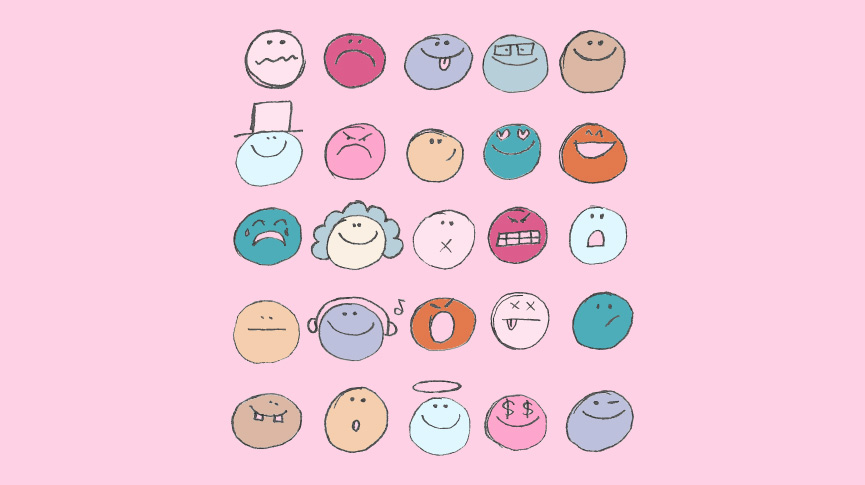Pregnenolone: The Mother Hormone

You’ve been busy educating yourself on the complex world of reproductive health from ovulation to orgasms.
You might have even taken a deep dive into the endocrine system and the many roles that hormones play in your wellbeing.
But there’s one, very important, a hormone that’s gone under the radar – until now.
*Drumroll please*
Presenting to you… pregnenolone!
Try saying that five times fast.
Let’s learn all about this mysterious hormone.
What is Pregnenolone?
You know pregnenolone is a hormone, but do you remember exactly what a hormone is?
Hormones are essentially chemical messengers that tell different systems of your body what to do and when.
So what makes pregnenolone special?
Although it doesn’t get enough credit, pregnenolone really runs the show.
You’ve heard of the big shots like cortisol, estrogen, testosterone, and progesterone, right? Well, none of those would be possible without pregnenolone.
The body uses pregnenolone as the starting material for producing these well-known hormones, and many more.
Hence the name “the mother hormone.” It’s also sometimes known as the “precursor” or “pro-hormone.”
How Does Pregnenolone Work?
Pregnenolone is a steroid hormone that is made from cholesterol. Not only is it a steroid hormone, but it’s also the first steroid hormone.
This mother hormone is produced in the adrenal glands, as well as in the brain and gonads.
Steroid hormones are essential for many everyday processes like your immune system, inflammation, metabolism, and sex characteristics.
These are just a few of the hormones the pregnenolone helps to create:
- Estrogens
- Cortisol
- Progesterones
- Androgens (testosterone)
Pregnenolone dictates what other hormones do and is the building block for much of your hormonal health.
Low Pregnenolone Levels
Hormone levels naturally decline with age, the same is true for pregnenolone.
Certain conditions may cause levels to dip at a younger age.
Here are some signs that you may have low pregnenolone levels:
- Declining memory and mental awareness
- Fatigue and reduced mobility
- Join and muscle pain
- Dry skin
If you think you may have low pregnenolone levels, you might be interested in pregnenolone supplementation.
Pregnenolone Supplements
Pregnenolone synthesis isn’t limited to our bodies, it can also be created in a lab.
Although there is limited evidence on the effects of pregnenolone therapy, it’s been promoted as being able to help a myriad of conditions.
Cognitive Health
Supplementing pregnenolone may help with different aspects of cognitive health like memory and sleep.
Because pregnenolone affects chemicals in the brain, it may play a role in psychiatric illnesses like bipolar disorder and schizophrenia.
In cases of schizophrenia, pregnenolone may improve some symptoms like a lack of emotion, limited speech, and the inability to feel pleasure.
It may even help improve symptoms related to autism, like irritability and social functioning.
Chronic Pain
Supplementing the hormone may affect inflammation and help with chronic pain.
So far, studies have found that supplementing pregnenolone for four weeks had a significant impact on people with chronic low back pain.
Anti Aging and Vitality
Pregnenolone is often seen as an anti-ageing compound.
The idea of supplementing it for this purpose is that it boosts the production of other hormones so that people feel younger and more energetic, with less fatigue.
Chronic Conditions
The use of pregnenolone may help reduce the frequency of seizures in people with epilepsy.
It may help improve symptoms of other conditions like multiple sclerosis, endometriosis, and certain skin conditions.
In the United States, pregnenolone hormone replacements are not approved by the Food and Drug Administration.
Are There Any Side Effects of Pregnenolone Supplements?
Because pregnenolone hormone therapy is not approved or regulated in most places, it’s unclear what the potential side effects are.
As of now, it’s not recommended to take it for longer than twelve weeks.
Some people have experienced side effects like:
- Irregular heartbeat
- Depressed mood
- Muscle pain
- A change in appetite
Another precaution is if you have a medical condition that may be worsened by increased estrogen. Avoid taking pregnenolone supplements if you have uterine fibroids or reproductive cancers.
Keep in mind that pregnenolone is a form of hormone therapy, not just a nutrition supplement, and it should be used with caution.
What to Remember About Pregnenolone
Are you as amazed by the power of hormones as we are?
Who knew there was a widely unknown hormone that packs as powerful of a punch as pregnenolone?
Now that you know a bit more about your hormonal system, you can better make the decisions you need to care for your health.
Remember that pregnenolone is a hormone supplement and not one to be taken lightly. It’s important to consult your healthcare practitioner before incorporating it into your routine.
If you’re wondering whether supplementing pregnenolone may help boost your health, give your doctor a call to discuss what your options are and to get your hormone levels tested.
By testing your pregnenolone levels, your provider can help rule out conditions that may be affected by it, and get you feeling your best.

Natasha (she/her) is a full-spectrum doula and health+wellness copywriter. Her work focuses on deconstructing the shame, stigma, and barriers people carry around birth, sex, health, and beyond, to help people navigate through their lives with more education and empowerment. You can connect with Natasha on IG @natasha.s.weiss.



Hi ! I am a 73 years old man, i am active and fit for my age ,i would love to feel libido again does pregnelone supplement help and is it safe !
Thanks
Kind regards Silvano